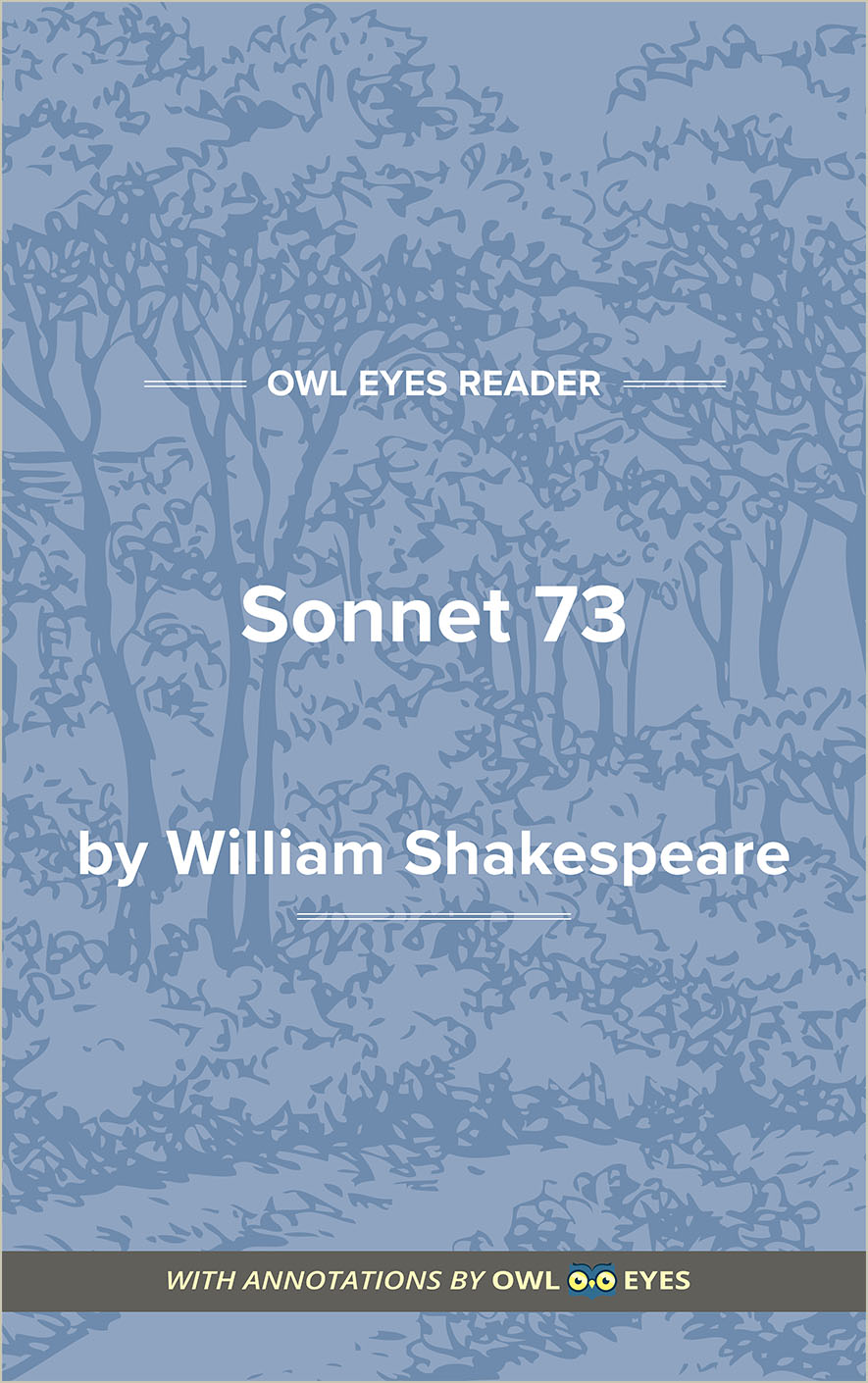Analysis Pages
Themes in Sonnet 73
Themes Examples in Sonnet 73:
Sonnet 73
🔒"love..." See in text (Sonnet 73)
"that..." See in text (Sonnet 73)
"thy love..." See in text (Sonnet 73)
"rest..." See in text (Sonnet 73)
"seals up..." See in text (Sonnet 73)
"against the cold..." See in text (Sonnet 73)

